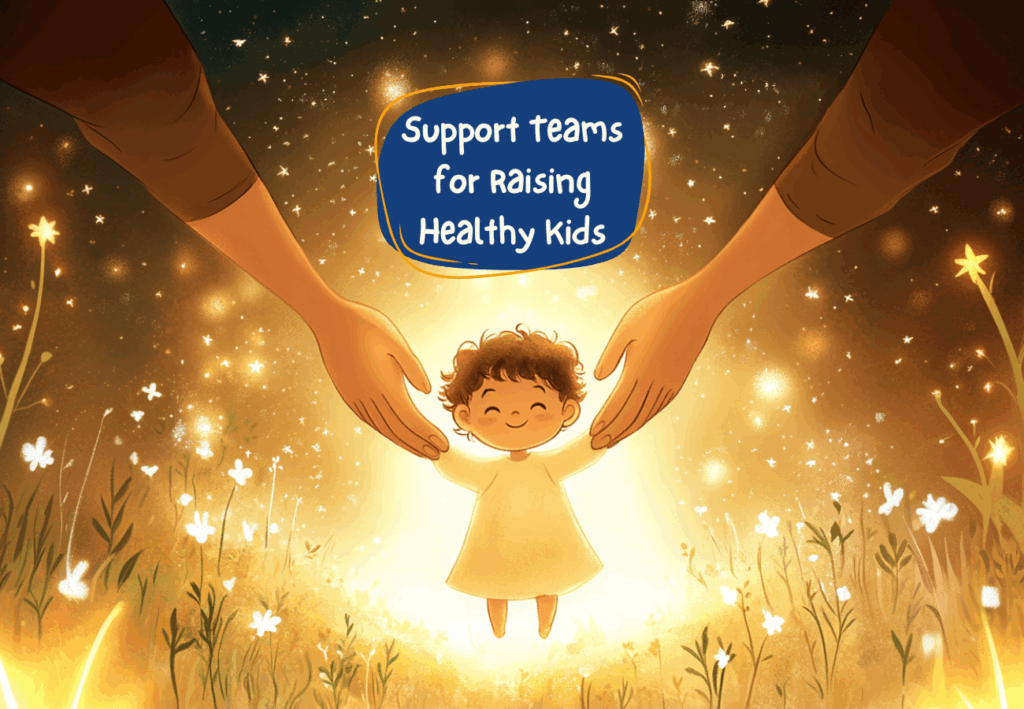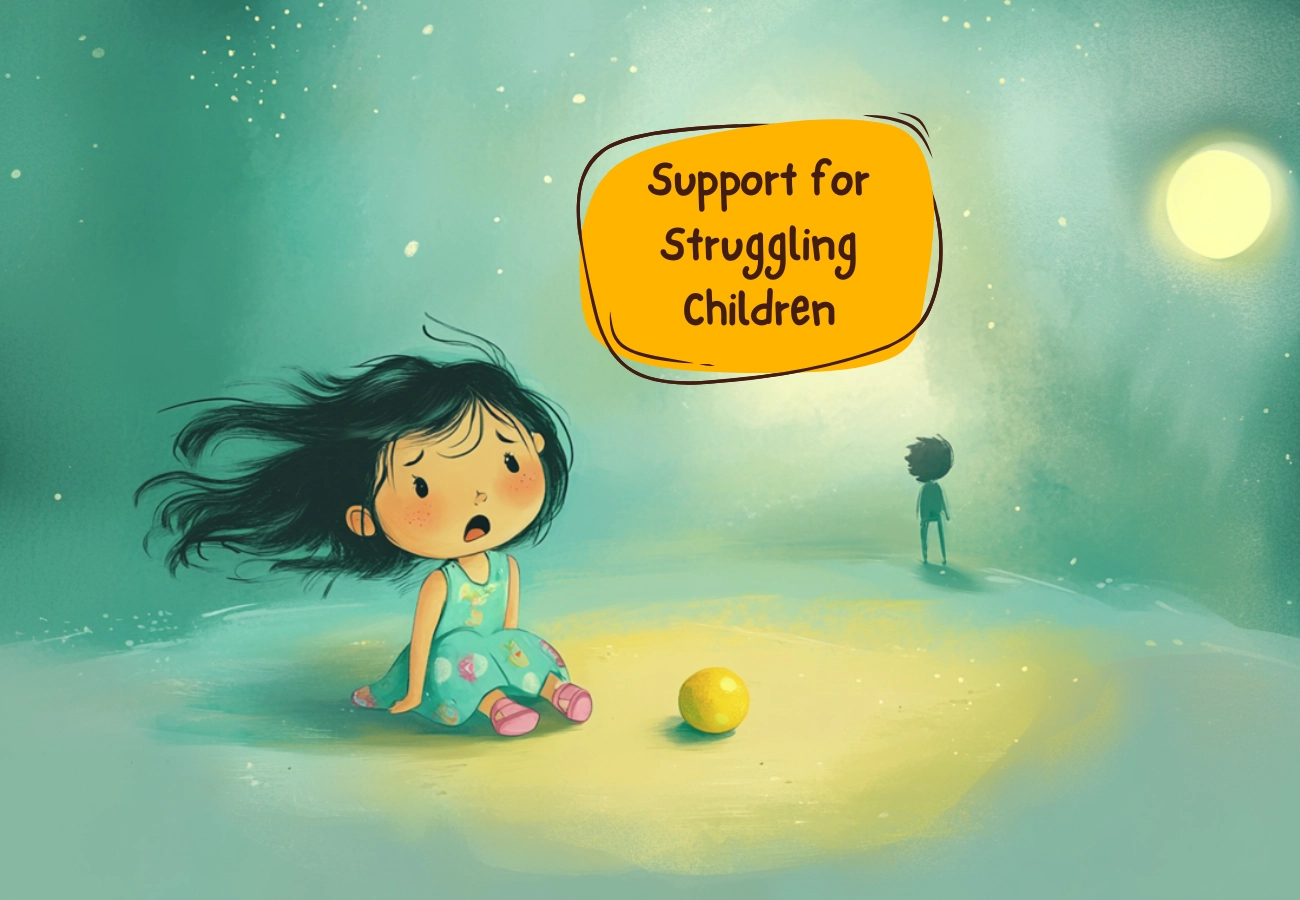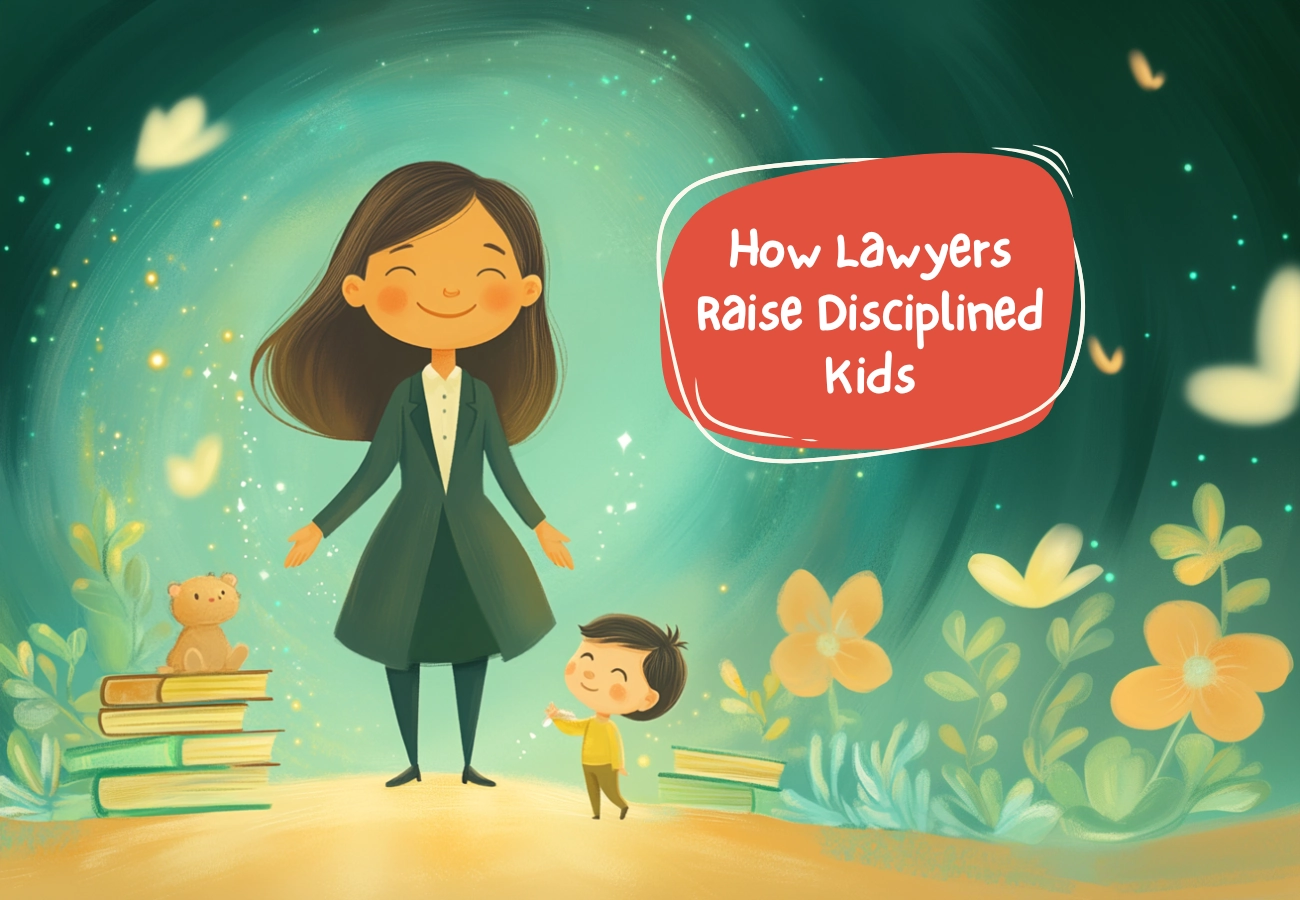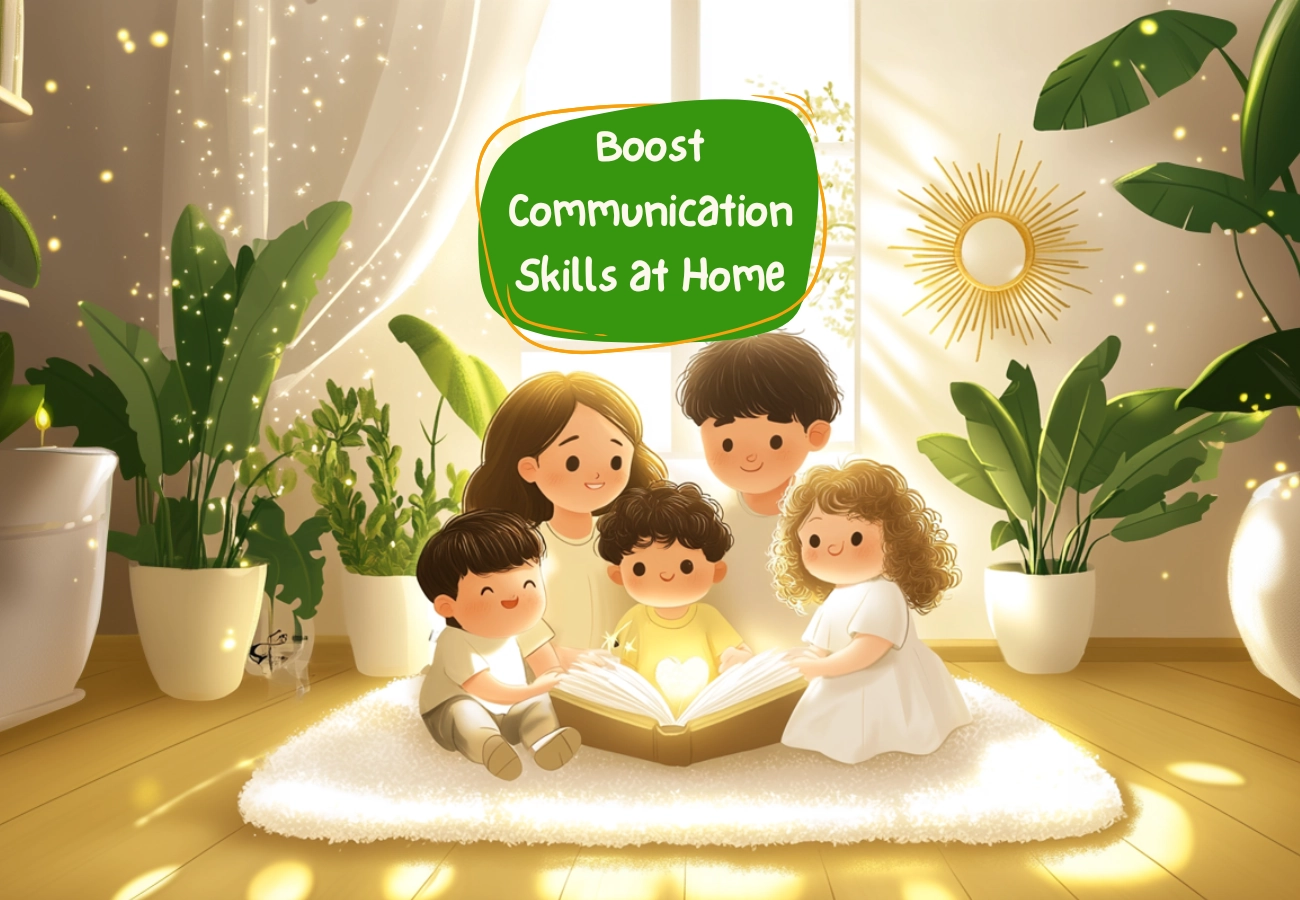The Support Teams Every Parent Needs for Raising Healthy Children

Parenthood is often seen as one of life’s most fulfilling experiences, but it’s equally known for its challenges. From sleepless nights with a newborn to the emotional twists of teenage years, raising healthy and well-adjusted children takes incredible energy, patience, and support.
While parental love and commitment are irreplaceable, no one should have to take on this enormous task alone. The familiar saying, “It takes a village to raise a child,” holds even more weight in today’s fast-paced world.
This modern-day “village” includes a diverse team of professionals and resources, all working together to support a child’s overall growth. Actively building this support system isn’t just helpful; it’s essential for nurturing resilient kids and strong, healthy families.
This article explores the support teams your child needs for holistic development.
Healthcare Support Team
A child’s well-being relies on a dependable healthcare support team that meets both physical and mental health needs. At the core is the pediatrician, responsible for regular check-ups, vaccinations, and managing common illnesses.
However, many families are also turning to Family Nurse Practitioners (FNPs) for a more personalized, holistic approach to care. FNPs often spend more time with families, offering deeper insight into a child’s development, behavior, and environment.
According to Cleveland State University, FNPs deliver care in community-based systems and private or interdisciplinary group practices. Their clinical competencies include assessing and diagnosing conditions using various tests and procedures, and creating evidence-based treatment plans.
For healthcare professionals interested in this path, enrolling in an FNP program online offers a flexible opportunity to gain specialized skills and advance their careers.
Beyond primary care, your healthcare team should also encompass specialists such as pediatric dentists for oral health and optometrists for vision. Mental health professionals, like child psychologists and counselors, are also essential.
According to the CDC, nearly 1 in 5 children aged 3 to 17 have received a diagnosis of a mental, emotional, or behavioral condition. Anxiety disorders, behavioral issues, and depression are among the most frequently diagnosed mental health conditions in children.
Finally, knowing your local urgent care providers and when to seek emergency attention ensures prompt, effective care during critical situations.
Educational Support Network
A child’s academic success relies not just on classroom instruction but on a broader educational support network. While teachers are central to this team, active parental involvement and partnerships with other professionals help support overall development.
Maintaining open communication with teachers, beyond scheduled conferences, gives insight into your child’s academic strengths, struggles, and progress. Equally important are school counselors, who guide students in academic planning and social-emotional development.
However, many schools face a shortage of these critical professionals. According to WPLN News, the average school counselor in Tennessee manages about 429 students, nearly double the recommended caseload. Overburdened counselors may miss red flags in high-risk students and cannot offer individualized guidance.
This shortfall is linked to issues such as lower graduation rates, reduced college enrollment, increased disciplinary problems, and even suicidal ideation.
For children with special needs, special education coordinators, IEP specialists, and legal advocates are essential. Yet, recent developments raise concern. CNN reports that proposed shifts in federal responsibility could jeopardize protections and funding for special needs students.
To help keep these resources available, parents can join school board discussions and work with administrators to address service gaps.
Family and Social Support Systems
Strong family and social connections provide emotional stability and practical assistance that are essential for healthy child development. Building and maintaining these relationships requires intentional effort but pays dividends in terms of both parent and child well-being.
Extended family members, including grandparents, aunts, uncles, and cousins, can provide both emotional support and practical assistance. These relationships give children a sense of belonging and continuity while providing parents with additional resources during challenging times.
Close friends who are also parents can be invaluable sources of advice, encouragement, and practical help. These relationships often involve reciprocal support, where families help each other with childcare, transportation, and emotional support during difficult periods.
Consider joining parent groups, either in your community or online, that focus on your specific interests or challenges. Whether it’s a new parent, special needs, or parenting-style group, these communities offer meaningful support from shared experiences.
Community Resources and Professional Services
Your community offers a wealth of resources that can significantly boost your parenting effectiveness and provide crucial support for your children. Learning about and accessing these can dramatically reduce parental stress and isolation.
Libraries, for instance, are far more than just book repositories. They host story times, educational programs, and homework help sessions. New York City, according to CBS News, is even expanding seven-day library service to ten additional branches. The Mayor and the City Council recognized their vital role as community hubs, securing $2 million for this expansion in the fiscal year budget.
Community centers and youth organizations offer fantastic opportunities for children to develop social skills, explore interests, and build confidence outside school. These programs also allow parents to connect with other families, fostering a stronger community bond.
Beyond these, professional services like housekeeping, meal preparation, and childcare providers offer invaluable practical support. While they involve a financial investment, these services can strategically reduce stress and improve your family’s quality of life.
Frequently Asked Questions
How do support groups help parents?
Support groups help parents by providing emotional encouragement, shared experiences, and practical advice from others facing similar challenges. They reduce feelings of isolation and build a sense of community. These groups often offer helpful resources or strategies, empowering parents to navigate parenting with more confidence and less stress.
What’s the difference between a pediatrician and an FNP in my child’s care?
A pediatrician is a doctor focused specifically on children’s health, expertly diagnosing and treating their unique conditions. A FNP, on the other hand, is an advanced nurse who offers similar comprehensive care, often with a broader, more holistic perspective. Both professionals can effectively serve as your child’s primary care provider, allowing you to choose based on what best suits your family’s healthcare needs.
How can I build a support network if I’m new to a community?
Begin by connecting with neighbors and joining nearby parenting or community groups. Explore local libraries, community centers, and school events to meet other families. Social media and apps can also help you find local networks. While building relationships takes time, small efforts can lead to strong, lasting connections.
Raising healthy children requires a comprehensive support network that addresses every aspect of your child’s development and your family’s needs. This network should include healthcare professionals, educational professionals, family and social connections, and community resources.
Building this support network takes time, effort, and planning, but the benefits are immeasurable. Children who grow up with strong support networks are more resilient, confident, and successful in all areas of life. Parents who have comprehensive support systems are less stressed, more confident, and better able to enjoy the parenting journey.
More articles

4 Strategies to Support Children Struggling With Overstimulation
Imagine an otherwise easy-going six-year-old who just returned from their friend’s birthday party. Luke was in an environment with loud music, bright lights, popping balloons, fast-paced games, and sugary snacks. On entering his home, Luke starts having a meltdown when his mother asks him to wash his hands. He even throws his shoes around and […]

How Lawyers Raise Disciplined Kids By Focusing on Logic, Not Fear
Lawyers spend their careers mastering logic, reasoning, and persuasive communication skills that often seep into how they parent. Most of us can imagine that practicing law is already quite intensive. However, when combined with raising kids, it can be overwhelming. In a survey of over 8,000 lawyers, it was found that 60% of working mothers […]

Tips for Parents to Boost Their Child’s Communication Skills at Home
Effective communication forms the foundation of a child’s academic success, social relationships, and emotional well-being. However, for many children, mastering these skills presents a significant challenge. According to recent data, nearly 1 in 12 U.S. children aged 3–17 has experienced a disorder related to voice, speech, language, or swallowing within the past year. Among them, […]



